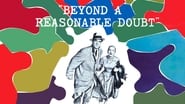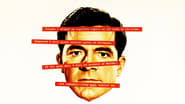Mjeteconer
Just perfect...
VeteranLight
I don't have all the words right now but this film is a work of art.
Baseshment
I like movies that are aware of what they are selling... without [any] greater aspirations than to make people laugh and that's it.
Logan
By the time the dramatic fireworks start popping off, each one feels earned.
secondtake
Beyond a Reasonable Doubt (1956)An early wide screen black and white drama that marks the end of Fritz Lang's American career and also shows the winding down of two great stars, Joan Fontaine and Dana Andrews. The film is no send off, exactly, but it is slightly tired, as if the formula of movie-making needs a twist and it isn't here.That's not the point, of course. This is now the mid-fifties, crisis time for Hollywood, and with widescreen (and widescreen color) movies making a final jab at the rise of television. The plot is sensational, and not too far from what an extended early television drama might try, with mostly interior shooting and a staged (sometimes stagey) presentation. In all it's not Lang's best, and he was a master at both noir/expressionist drama and at getting to the human dilemma of fate and murder. Andrews and Fontaine are not a bad pair—both are matched in calm and sophistication, and beauty, even, though Fontaine seems like an accessory until the very end. Andrews rules the plot, which makes him out to be a writer desperate for a new story. So desperate he's going to pretend to commit a murder just to test the justice system.It's all so outrageous you want to believe it, though your mind says it just wouldn't happen. It's too convenient, and one man's suggestion from the newspaper turns out to be the other man's reality. Enough said!Oddly enough, this is an RKO distribution even after the studio's demise (I don't know the reasons there) but it might point to a less than perfect crew. Certainly the cinematographer, which Lang relied on greatly in earlier films, is no one with credentials. Likewise the editing and writing are fairly routine, even lackluster. And so if a movie that depends on some psychological intensity is really a bit of a grunt effort, whatever the star power involved, it's a bit doomed. So watch this if you are curious about any of the parts. I'm a fan of all three of the principles here, and so had to watch it. But I didn't walk away impressed.
jc-osms
I'm always pleased to catch a Fritz Lang thriller on the TV schedules and was surprised to learn from IMDb that this was in fact his last Hollywood feature. To be honest, it doesn't really compare to his best work, being quite plot-heavy and not perhaps offering him much inspiration for his customary flourishes. That said it does start very sombrely with a near-silent depiction of an electric-chair execution, before the main, convoluted plot-line kicks in with a too blatant anti-capital punishment message. There's little else for the old maestro to do but try to follow the ins and outs of the story, which is too unbelievable and predicated on coincidence to really convince with even the twist at the end just too far-fetched and under-powered to finish the film on any kind of high, plus the complete absence throughout of any other suspect makes the final denouement obvious in the extreme. It is possible to detect Lang pushing the boundaries a little a la Preminger with occasionally risqué dialogue and Dana Andrews interaction with the strippers but "Anatomy Of A Murder" this isn't. The acting is solid enough with Dana Andrews and Joan Fontaine only occasionally looking befuddled by the over-intricacies of the narrative but in the end this isn't one of the great director's finest hours and not a film he'll be best remembered for.
ackstasis
'Beyond a Reasonable Doubt (1956),' another taut thriller from Fritz Lang, takes an intriguing concept and runs with it. Tom Garrett (Dana Andrews), a writer looking for an idea, and Austin Spencer (Sidney Blackmer), an editorialist against capital punishment, contrive a bizarre scheme to expose the flaws in the American legal system. Garrett agrees to set himself up as the prime suspect in a murder, using only circumstantial evidence. Spencer agrees to withhold the evidence of his innocence until after Garrett is convicted and sentenced to the death penalty. Joan Fontaine plays Susan Spencer, Garret's fiancée, who isn't let in on the ruse. The moment when Austin Spencer is killed in a car accident, leaving our hero seemingly without any hope of reprieve, is still shocking despite its inevitability, leaving a powerful feeling of hopelessness. The film's final twist, however, I did not see coming. Regrettably, 'Beyond a Reasonable Doubt' pulls yet another twist in its final seconds; it would've been better had the film been made a decade later, free from the restraints of the Production Code, which demanded (and received) an ending that "does not lower the moral standards" of audiences.
zardoz-13
"Beyond A Reasonable Doubt" is the last film that "M" director Fritz Lang made in Hollywood, and the theme of this intriguing but far-fetched law and order thriller concerns the morality of capital punishment. Capital punishment, crime, and murder obsessed Lang throughout his lengthy career, and this RKO release provided Lang with another opportunity to deal with an innocent man who through a fluke in the justice system may die for a crime that he didn't commit.Tom Garrett (Dana Andrews of "The Ox-Bow Incident") is a former newspaper journalist turned novelist who agrees to test the strength of the justice system when his former boss, newspaper publisher Austin Spencer (Sidney Blackmer of "Duel in the Sun"), thinks that the local district attorney is too good at his trade. Spencer loathes the idea that an ambitious District Attorney Roy Thompson (Philip Bourneuf of "The Molly Maguires") will exploit his ability to send men to the electric chair as a means to becoming the next governor. When a burlesque queen is murdered, Tom and Austin proceed with their plan to implicate Tom for the homicide.Meanwhile, Austin's daughter Susan (Joan Fontaine of "Suspicion") does not understand this secret scheme that her father and Tom are concocting until she sees a picture of her fiancée in the newspaper with another woman Dolly Moore (Barbara Nichols), who stripped at the same club with the victim. Anyway, Tom buys a grey top-coat which a witness, who could not discern the facial features of the man, said he was wearing. Tom takes a lighter that Susan gave him and throws it in a ravine near where the girl died. Eventually, Thompson takes Tom into custody and charges him with the death of the stripper. The morning of the sentencing, Austin puts all the pictures in an envelop and backs out of his garage. No sooner has he backed out than a truck collides with him, knocks his car over, and a fire erupts. Austin dies in the car and the evidence goes up in smoke. Tom reacts with shock at the death of Austin. He goes into court and explains what happened, but the jury finds him guilty and he is sentenced to die in the electric chair.The two sizzling surprises that cap this nifty 80-minute melodrama will leave you reeling. The chief difference between this version and the new Michael Douglas version is that Lang did not have the elaborate technology the director Peter Hyams takes advantage of in his remake. Furthermore, the protagonists in the Lang version were targeting the death penalty and the ease with which Thompson won convictions on circumstantial evidence. In the Hyams version, the district attorney is crooked from the get-go. Unfortunately, this threadbare, black & white production will strike contemporary attention-deficit audiences that crave explosive action-fests as boring.





